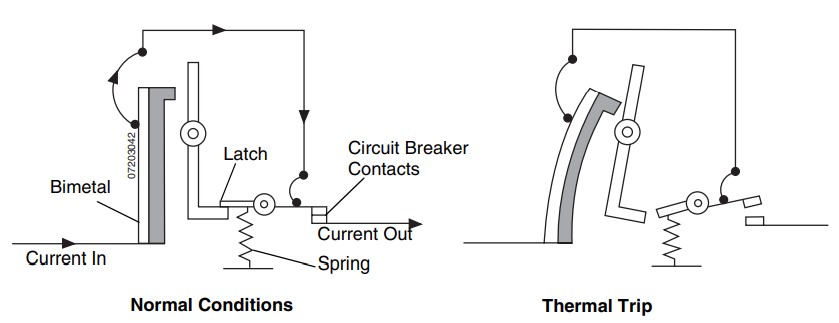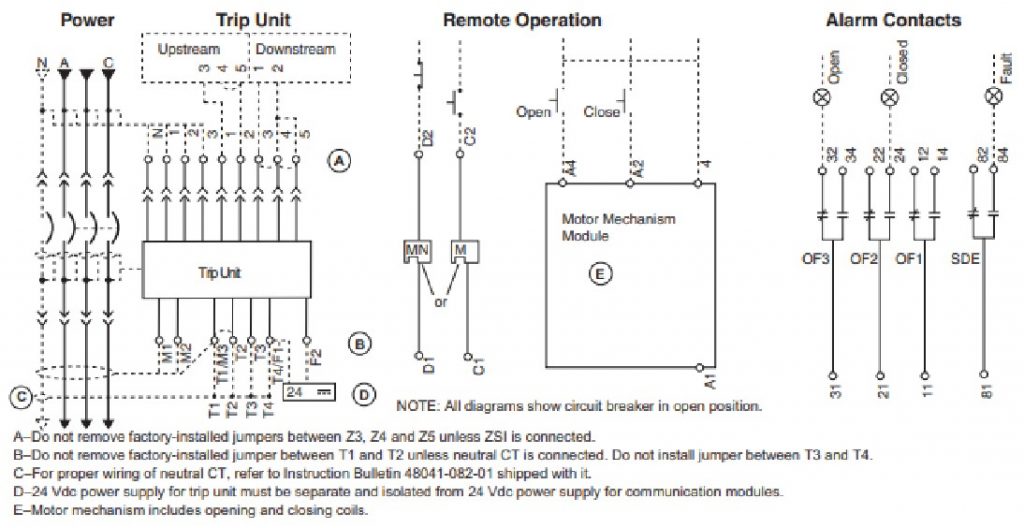Circuit breakers are designed to interrupt current when there is too much load on a circuit. They are designed to stop the flow of electricity to prevent injury or the failure of other electrical components like the wiring, generator end or receptacles. Winco uses multiple types of over-current protection technologies based upon the application.
Thermal
A thermal breaker, as it sounds, works with heat. Current (amps) creates heat as it passes through the breaker, if the breaker gets too warm, it opens a switch that is normally spring loaded to open the circuit and stop the electrical current.
- Advantages: Less expensive and has a time delay as the breaker heats up.
- Disadvantage: Slower reaction and is affected by ambient temperature.

Magnetic
A magnetic breaker has a coil. When excess current passes through, it becomes a electromagnet which opens the breaker.
- Advantages: Very fast to high current like dead shorts.
- Disadvantages: Can’t handle the slow overload trip with time delay.

Electronic
With an electric breaker, a computer chip controls the trip point and delay precisely. We use electronic breakers on our generators above 100kw so you can set the trip point and switch between voltages using the same breaker.
- Advantages: Quick, precise trip
- Disadvantages: More expensive

Hydraulic
A hydraulic breaker is similar to a thermal breaker, but instead of using heat, a viscous liquid control the trip point.
- Advantages: Not affected by ambient temperature and a delayed trip is possible
- Disadvantages: Not available in all sizes
In order to get the best combination of trip characteristics many circuit breakers combine technology. For example, a thermal/magnetic breaker has a slow reacting thermal trip mechanism and a fast reacting electromagnetic mechanism. Winco indicates which safety technology the main line circuit breaker is using on our spec sheets.

The other day my dad mentioned that he needs to have his circuit repaired. I do believe it is important for us to ensure it is done by professionals. I will keep this information in mind for future references.
It really stood out to me when you explained that circuit breakers are used to prevent the failure of electrical components. I would imagine that larger electrical applications would need to have large circuit breakers. A circuit breaker would need to be large enough to handle the electrical load.